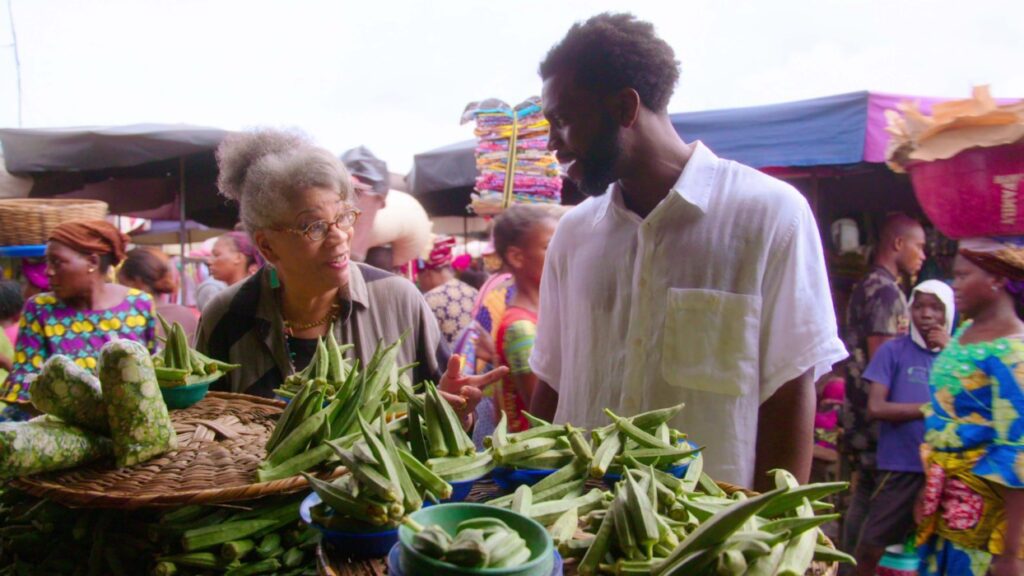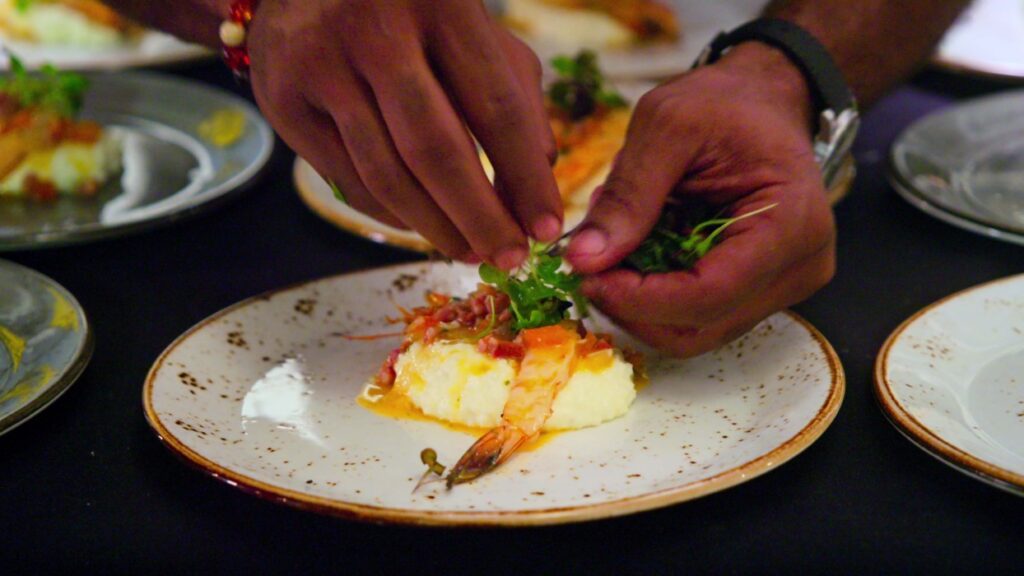
Okra, rice, beans, black-eyed peas, water melon, sweet potatoes and yams, you name it, are all foods that are native to the continent of Africa, that has had an impact on the culinary history of America. In fact, what’s commonly known as a Southern staple okra, often used in gumbo is actually a French word called gombo in West Africa. The green vegetable with rows of seeds and slimy texture, was brought over to the new world and is served up in a variety of tasty recipes. And for the record, what what we’ve been calling a yam is most likely a sweet potato. This myth is one that has been carried over for centuries into the Americas.
In a Zoom interview with The Chocolate Voice, we had the opportunity to chat for a few minutes with food culture writer Stephen Satterfield, and Dr. Jessica B. Harris, author of twelve books including her book written in 2011, that has been adapted into the new Netflix four-part docu-series, High on the Hog: How African American Cuisine Transformed America, airing on May 26.
At the beginning of the film, food historian and renowned author Dr. Harris picks up a huge yam and describes it as a “hairy elephant foot,” pointing it out to Satterfield, narrator and the series host.
“This has become my daily rant, busting the myth of the yam confusion,” Says Harris.
In an in depth cinematic interpretation, “High on the Hog: How African American Cuisine Transformed America” is an astounding cultural immersion — part culinary show, part travelogue. The series follows Satterfield as he embarks on a vibrant cultural journey meeting with chefs, historians, and activists who are keeping centuries-old traditions alive. What makes the film extraordinarily poignant is the celebration of the ingenuity and resourcefulness of African people and descendants of Africa.
Satterfield takes the viewers on a chronological journey starting out with part one exploring the cultural roots of Topka Benin, the hub of the transatlantic slave trade. Satterfield and Harris explore the creativity at one of the largest open air marketplaces in West Africa, tracing over foods, while confronting truths about the legacy of slavery. Quintessentially, food, was at the root of slavery in transporting Africans to the Americas. In one scene, it shows Satterfield’s emotional connection to Africa, as he’s moved to tears as he walks the same path as slaves taken into captivity.
In part two, the series delves into the culture of the Carolinas. In North Carolina he visits with a cultural preservationist named Gabrielle, who uses community dinners as a way to preserve Black food traditions. While exploring Charleston South Carolina’s fine dining scene, it is discovered that there are very few black-owned food establishments in the region.
Moving on to the Sea Islands in the low country, the film explores the the rich Gullah Geechie culture, and the cultivation of rice plantations that were developed out of slave labor creating a robust economy something that most of us might be surprised to learn, considering rice is perceived as a staple in Asia. Satterfield learns the history of Carolina Gold rice, a prized crop made possible — and profitable.

Throughout the rest of the series, Satterfield travels to the Northeast where the audience discovers the surprising root of the popular mac n cheese dish. From there he travels on to Sandy Ground, one of the oldest free-black communities in the United States. While there, we learn the history of Black trailblazers in the Oyster industry.
Lastly, the series explores Texas’ rich history of barbecue, the cowboy culture and cowboy stew. Most surprising about the journey Sattlerfield says was in Texas, seeing the strength of cowboy culture as it is today, and observing the ways in which they closely guard that century-old tradition. The series directed by Academy Award winner Roger Ross Williams, reveals an expansive, eclectic culinary history shaped by slavery, the Civil War, Juneteenth, and present day.
Airing on May 26 on Netflix, “High on the Hog: How African American Cuisine Transformed America,” is a must see! The 4-part docu-series is a cultural revelation filled with rich history in food and culture that will inspire us all to get out and travel, to learn about Africa’s culinary contribution to America.
